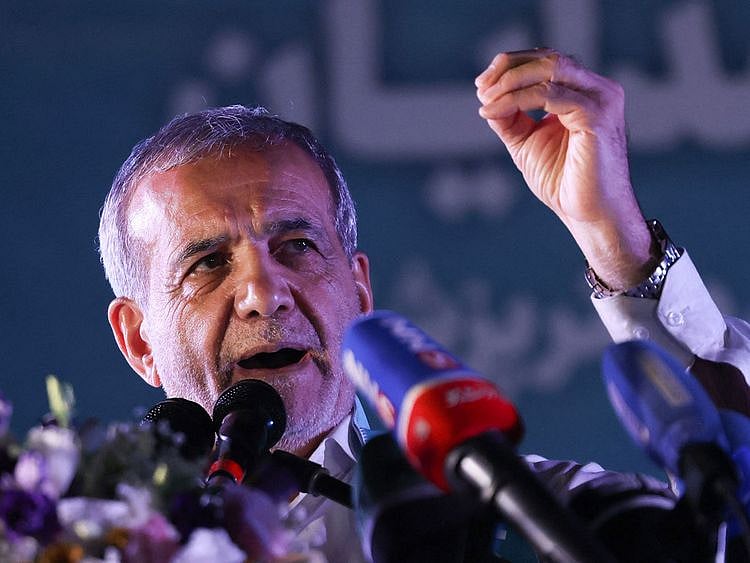Iran: 5 things to know about Masoud Pezeshkian
World watches to see how his ideals will navigate turbulent political environment of Iran

Reformist candidate Masoud Pezeshkian has been elected as Iran’s new president, defeating hardline conservative Saeed Jalili, as per Iranian state media.
Here are 5 things to know about the incoming Iranian president:
A reformist politician
Masoud Pezeshkian is not new to the political scene in Iran. A former health minister under President Mohammad Khatami, he has served in the Iranian parliament for 16 years, including a notable stint as deputy speaker.
His deep involvement in politics, combined with his reformist stance, makes him a seasoned player who understands the intricacies of Iran’s political landscape.
A voice of reform
Pezeshkian gained significant attention for his outspoken criticism of Iran’s morality police and the crackdown on pro-democracy protests in 2009 and 2022.
His condemnation of the violence following Mahsa Amini’s death in custody resonated with many Iranians who seek greater social justice. He has consistently advocated for addressing the country’s issues through dialogue and reform.
A champion of dialogue with the West
Pezeshkian is a proponent of constructive negotiations with Western powers, especially concerning Iran’s nuclear programme.
He sees dialogue as essential to alleviating Iran’s international isolation and addressing domestic economic woes. His election signals a potential shift towards more engagement and less confrontation with the West.
A personal story of resilience
Tragedy struck Pezeshkian’s life in 1994 when he lost his wife and one of his children in a car accident. This personal loss has deeply shaped his political career, leading him to devote much of his time to public service and politics.
His ability to persevere through personal hardship and his dedication to his remaining family members, particularly his daughter who often accompanies him at public events, has endeared him to many voters.
A relatable figure
Pezeshkian’s background as a member of an ethnically mixed family and his fluency in several language, positions him as a relatable figure for Iran’s ethnic minorities.
This unique heritage has bolstered his image as a leader who understands and represents the diverse cross-section of Iranian society, even as it exposes him to xenophobic attacks from some opponents.
As Pezeshkian steps into the presidency, the world watches to see how his reformist ideals will navigate the complex and often turbulent political environment of Iran.
Sign up for the Daily Briefing
Get the latest news and updates straight to your inbox
Network Links
GN StoreDownload our app
© Al Nisr Publishing LLC 2026. All rights reserved.